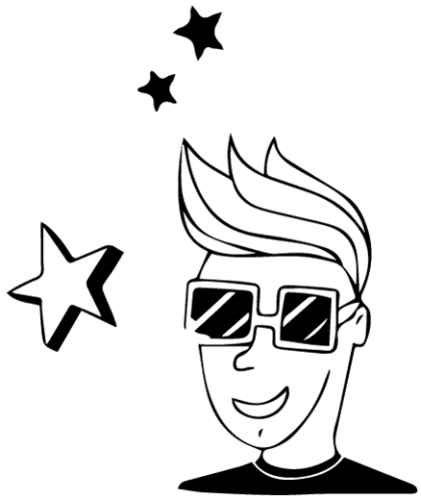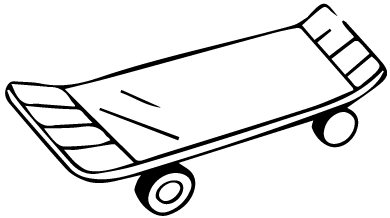

LLADAT for Students


The LLADAT afterschool programme is an opportunity for you to learn more about drugs. Sessions are interactive and conversational – they look for your input, thoughts, and opinions. They are not lectures, nor will you be lectured at – instead you are asked to give your opinion!
You are invited to attend with your parent/guardian – this is not to “monitor” you but rather to create a shared learning environment… the session is as much for them to learn as it is for you!
The content of the session explores the following:
- Cannabis usage can affect your mental health
- Solvents abuse can led to pre mature death
- The consequences of alcohol are as harmful as illegal drugs – affecting health and wellbeing, relationships, and your safety.
Check out more information here through our FAQ section, and read what others students who have participated thought about their experience of the session..
Student FAQ
The LLADAT programme is a two session programme, developed for 2nd year pupils and their parent/guardians. Pupils attend the second session only, while the parent/guardian attends two sessions.
The programme is currently delivered to over 50% of post-primary schools, with over 300 2nd year pupils getting involved each year from across the region. The purpose of the programme is to support the work done in your Social, Personal and Health Education (SPHE) class.
The sessions are interactive, with games and activities, with no lecturing! The programme seeks to support you to make informed decisions around substance use, by addressing what can be a very difficult topic in a safe and welcoming environment.
Essentially, just, show up and participate!
Your attendance is a key part of the session!
The session is based around four key activities. Working in groups you’ll work with other parent/guardians and students to complete the activities. Don’t worry you’re only working with your parent for one session – you’ll be moving around working with others for the rest of the session.
Both sessions are interactive and engaging but nobody is put on the spot or made participate if they do not wish to contribute, and there are certainly no role plays!
Our independent evaluation carried out by the University of Limerick, showed that pupils really valued the sessions, and found them interesting and beneficial. Below we have categorised some of the pupil comments. [For the full report click here]
Content and Structure:
- 49% of pupils believed the best thing about the programme was simply that they learned about the substance.
- “It’s a lot better than just sitting there having someone talk at you. You were like, involved.”
- Group work, working in groups.
- The way you have to move around all the groups.
In relation to having parent/guardians present:
- “Well, it was nice to have an adults view or perspective – it sort of helped.”
- “Because you got to see like their point of view on subjects.”
Facilitator / Presenter of the Programme
- “You could be honest and tell her stuff. It won’t be like told like.”
There is no denying that the issue of drug and alcohol use can be upsetting for some. As a result, there is a natural risk of upset and distress. The content of the workshops is pitched to minimise this, and sticks to facts, with little or no sensationalism. We offer links to support services for those involved and would encourage anyone that is distressed or upset to link in with the worker before the close of the session. The school SPHE teacher/Chaplin and pastoral care team are made aware of the programme and are available if any student has any questions coming from the session.
We encourage pupils to talk as much as possible, spunout.ie and drugs.ie and the ISPCC, along with ChildLine have great forums where students can talk in comfort and confidentiality if they don’t want to talk to someone in school or home.
Participation in this programme is very much dependant on your parent/guardians and your school. From my experience students who have hesitated in the past but have turned up enjoyed themselves – it really is just games and activities.
There is some information collected on the night for varying reasons:
- A sign in sheet collects your name and phone numbers on the night, this is in the event that we have to cancel the second workshop, and in case of any emergency on the night, we have a list of those attending.
- You will be asked to complete a survey and evaluation. These are referred to as the “feedback evaluations” The data collected on these surveys is collated with data from other schools around the region and presented to the HSE as part of our annual report and funding application for the following year. While this document asks for your name this is purely to make a comparison and will not be passed onto schools or parents.
- All information that is collected is kept private and stored securely and safely on the researchers’ computer. The computers are protected with a password. Your name will not appear on any information. The information that is gathered in the study will be kept for seven years. After this time, it will be destroyed.
Parents, guardians, grandparents anyone with a responsibility or relationship with other second year pupils in the same school are invited to take part. We ask schools to open the programme up to all second year pupils and their families.
There have been some instances in the past where we have clustered schools. We “cluster” schools to facilitate and accommodate more parents, pupils and schools, where this is taking place schools, parents and pupils are notified well in advance. Clustering is always done in partnership and with the support of the individual schools.
Parents, guardians, grandparents anyone with a responsibility or relationship with other second year pupils in the same school are invited to take part. We ask schools to open the programme up to all second year pupils and their families.
There have been some instances in the past where we have clustered schools. We “cluster” schools to facilitate and accommodate more parents, pupils and schools, where this is taking place schools, parents and pupils are notified well in advance. Clustering is always done in partnership and with the support of the individual schools.
If you have any questions about the programme you may contact either the school directly or indeed the Post Primary Substance Use Education Worker, Dr. Sancha Power. It is important that you feel that all your questions have been answered.
Dr. Sancha Power
sancha.power@hse.ie | info@lladat.ie
(086) 4678010 | (061) 607242
At any stage should you feel that you want to stop taking part in the programme, you are free to stop and take no further part. There are no consequences for changing your mind about being involved from our part!